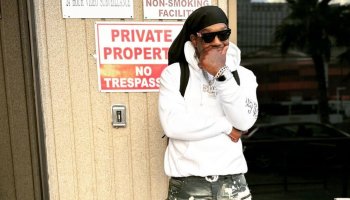Julius Malema, a black man who leads the youth wing of South Africa’s governing party has been told he has no right to sing an anthem that some whites find offensive.
A judge has ruled that the antiquated anthem had its time during apartheid, but when used in today’s context it stirs up conflict amongst a society struggling to redefine race relations.
Malema’s trial became an issue broadcast across national television as his hate speech hearings stretched across a four month period.
His ongoing African National Congress disciplinary hearings have also drawn nationwide attention in South Africa.
Many South Africans chant “Shoot the Boer” as part of the heritage of the anti-apartheid movement.
“Boer” means farmer in the language of South Africa’s Dutch descendants known as Afrikaners.
After news of the verdict reached ANC supporters gathered outside the downtown Johannesburg courthouse, crowds began singing the song in defiance of the judge’s ruling.
Under the ruling, criminal cases can now be brought against those who sing the song or quote its lyrics.
Malema and the ANC explained that the song is used as a symbolic call to fight oppression in a society where the majority of blacks still remain poor even 17 years after the end of apartheid
. It is not be interpreted as a literal threat against whites.
Malema’s efforts have forced South Africa to confront its racial divide and claimed to represent the country’s restive, poor, black majority.
The disciplinary hearings, which could lead to Malema’s suspension or expulsion from the party, focus on accusations he is undermining President Jacob Zuma.
The AfriForum is the white rights group that originally brought up the hate speech suit against Julius Malema himself, but Judge Colin Lamont took measures even further. The Judge ordered that not only should Malema refrain from singing “Shoot the Boer”; all South Africans should abide by the same instructions.
AfriForum chief executive Kallie Kriel, said Monday his group respected the heritage of the anti-apartheid movement, but agreed with Lamont that South Africa now should move on.
“We need to find mutual recognition and respect among communities,” he said, calling the ruling a victory over Malema’s vision of South Africa.
Malema’s lawyer, Leslie Mkhabela, believes the court is not the correct forum to debate such social issues.
The judge made a point similar to Mkhabela’s , and urged the parties to find a mediated settlement. Monday, he said he hoped the attention drawn from the trial, and his decision to allow cameras to broadcast much of it, would help South Africans learn about each other and histories lived largely in violent isolation from one another.
Before delivering his ruling, Judge Lamont touched on South Africa’s colonial history, its struggle against apartheid and the media attention and public outrage caused by Malema’s insistence on singing such lyrics as “shoot the boer, they are rapists, robbers.”
The judge concluded by saying post-apartheid constitution encourages all members of society to “embrace all citizens as their brothers” and avoid language designed “to be hurtful, to incite harm and promote hatred.”
Sounds like a check of retrospect to me.
What are your thoughts?















